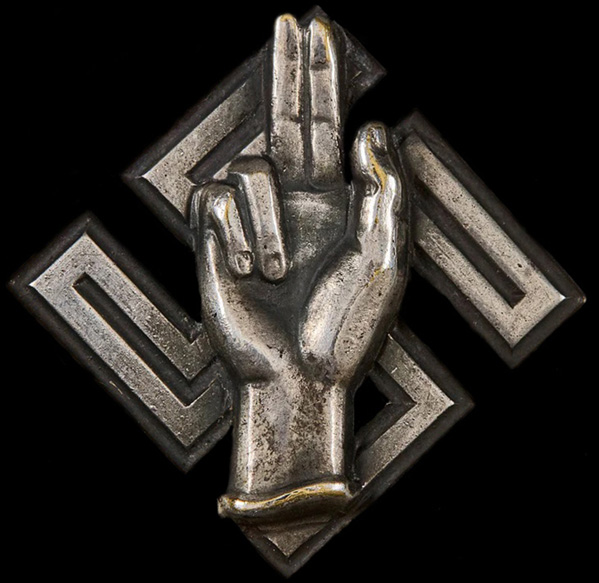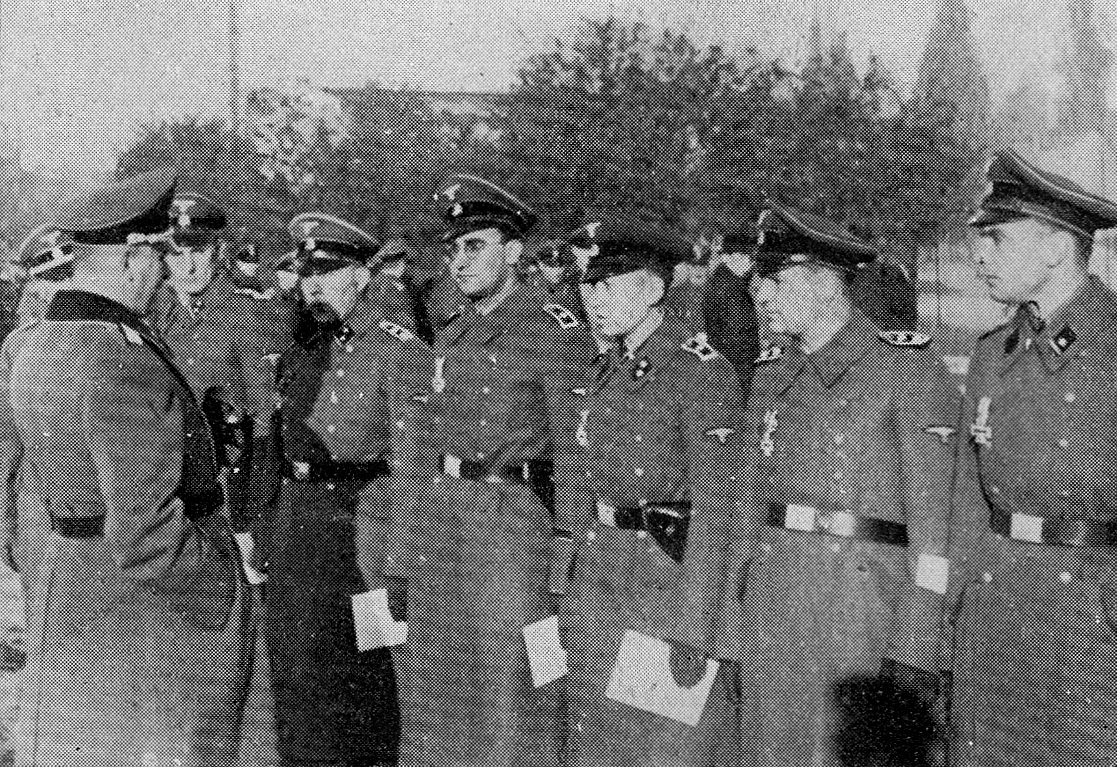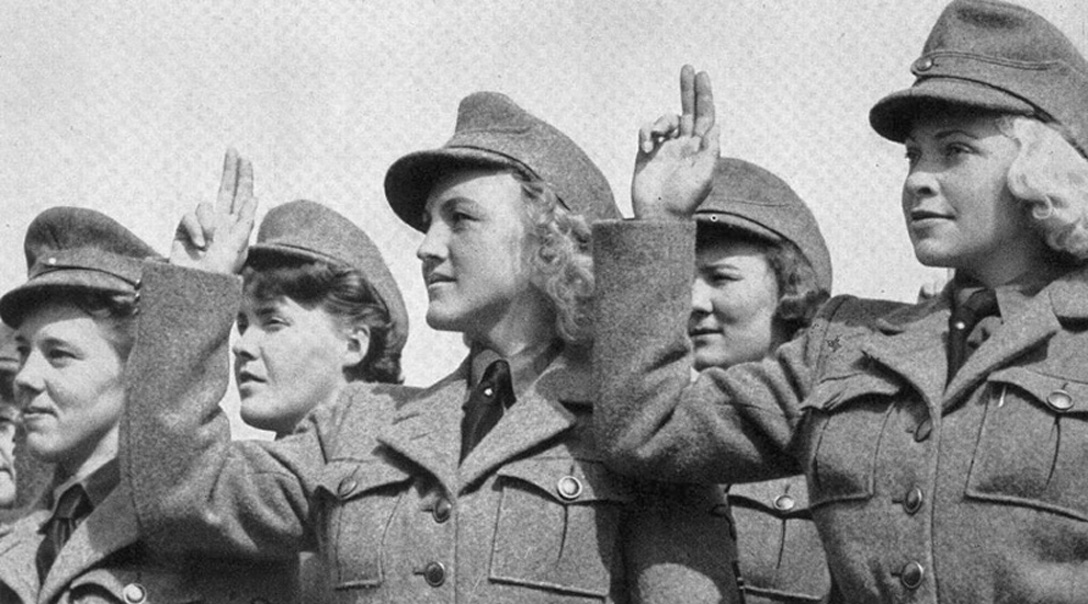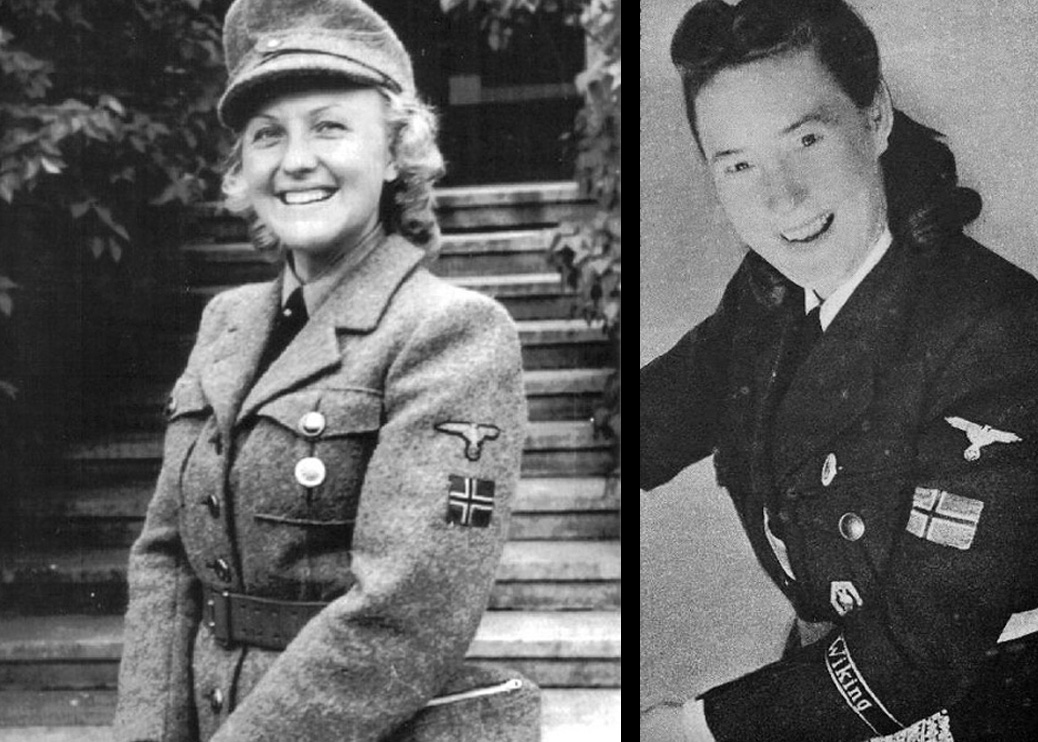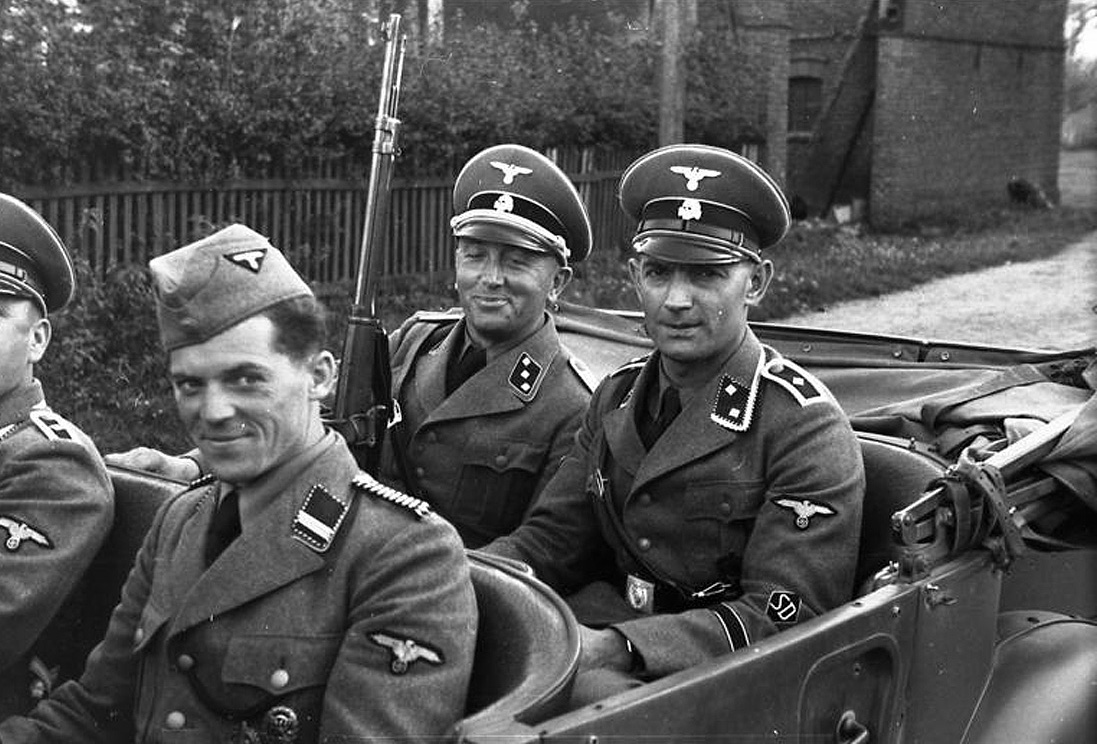Siegfried: I want to tell you I was not a member of the SS; the SS was a brother to the police. I was a police officer in the SiPo [Sicherheitspolizei, or Security Police] and my office was criminal police working on subversion. I came from Elbing, and after schooling applied to the Prussian police, who brought me to work in [Reinhard] Heydrich's section, the SiPo. I was in an office which was building cases against homosexuals.
I will tell you we had to make sure that they were watched and arrested if they acted on their impulses. We would investigate reports of illegal abortions as well. Many doctors in Berlin were performing these, and many were Jews. If we found evidence of this happening they were sent to prison. The Jews were forced to leave Germany after their sentence.
Abortion was highly illegal, unlike today, you could only receive one if it was medically necessary or there was incest. But the homosexuals were our main target, they grew in the Weimar era and when Hitler came to power they did everything in the dark. It was considered to be a sin of great moral decline, which we prosecuted fully.
When found they were sent to special camps made just for this type of crime. Surprisingly, in the camps they had access to prostitutes to try to change them back to normal. This was a project of Himmler, who believed this was just a bad choice men made and could fix it.
When the war came there was a need for police in the occupied areas and I volunteered for this duty. We were still police and not part of the SS. The new units that were formed were called 'action groups', and we each had our own area to work in. I was assigned to action unit 1, and we had to hunt down released prisoners and subversives in Poland. This nation had some German communists who fled from us.
Our tasks in Poland are misunderstood; when it was clear Germans troops were close the Poles released all the insane, criminals, and elderly. They thought this would slow down the advance, but it did not. It left the police having to round these people back up, and some were quite violent. If they had attacked people they were most of the time executed.
These were criminals of all sorts from killers, forgers, rapists, abusers, and thieves. They terrorized the local civilians, and we had to catch them. There was a man who had killed his wife's father, then was released, and killed her. We arrested him in the house living with her body. We were so angry and disgusted he was shot on the spot without a second thought about it.
This was our existence, tasked with hunting down the lowest of society who preyed on people. This happened on all fronts during the war. This was our mission, and this was carried out with wartime laws.
In my history class a Holocaust survivor said the action groups hunted down and rounded up Jews. Did you have to do any of this?
Siegfried: Oh yes, it always comes back to the Jews. I can tell you that yes we did, this is because the Jews were not like what we know them to be today, which is odd. Here they are clean, upright, well off, and mixed in various neighborhoods. In eastern Europe it was different, they lived very poor lives. They made up large parts of certain towns.
They had gangs that would run around from town to town, stealing and cheating. Some Jews were very poor and lived in filth, others were very rich and well off. It was odd to see; they fought within themselves. They lived like small countries on an island, separate but would venture out to become rich. It is odd, but to protect them we had to move them to better conditions called ghettos.
I will tell you that when we arrived in Russia, it was chaotic. The Ruskies did the same thing; they released criminals from prisons, but killed the political prisoners. I saw that personally when we came to a jail that housed men who had been arrested, we were told for hoarding food, they had been shot.
You know who had done the shootings? It was a group called the NKVD [The People's Commissariat for Internal Affairs] who were evil men and many Jews were in their ranks. I used to have a bunch of photos of the ones we captured, but when I left Germany they were lost. You could see the features of these men were Jewish. Curly hair, big eyes, hooked nose, high forehead, and the big ears that stick out.
There was good reason why Jews were moved out of the areas they lived in. When German forces came through, locals rose up and attacked them once their protectors left. There were many instances of this and we had to investigate the killings; they were not pleasant to see. One Jewish family, I was in the north in group A then, had all been beaten by a mob.
This was in Poland which the Russians occupied, many Jews moved in from other areas. They worked many times for the Russians, and spied for them, telling on people. This got many Poles sent away.
The militias and mobs exacted revenge against the Jews like the world had not seen. In turn Jews went after and attacked the leaders of these groups. This was in 1941, and it is what formed the partisan bands that gave us problems. We arrested both Jews and Poles to stop these killings.
This is why we were ordered to remove Jews from some areas where they settled, they caused problems for the people. What we did, we did due to the conditions we found, and it was done to help the Jews stay safe. We had nothing for them or against them, we knew their past but not all were guilty. Very large areas were set up to keep them safe.
I must confess we had orders to shoot those guilty of murder if they killed someone without good reason. This was hard for me to see, as sometimes there would be dozens of people who had been sentenced. These were the vigilantes and could be either Polish or Jewish. For a time, right after the war with Russia, things got out of control and these measures had to be used to regain control.
I can tell you it was not pleasant for me, and it sickened me to see this. We were confused at times as why we were made to clean up issues between the two peoples. Then the partisans started to attack us, which brought about reprisals against them. I had some photos taken of the short trials of the guilty, these were lost as well.
Wow, did you guys get any extra leave to help with the stress of doing all this?
Siegfried: Yes we did, our commander had special places for us, and they were like retreats today. It was like having a vacation away from the war. We would go into action for maybe a month, and then have several weeks off to rebuild and keep our wits.
We had priests who came from local areas, who were glad to be able to practice again. They would speak through an interpreter to give confessions or blessings. Sometimes the home front volunteers would bring religious men if we needed them. A man in my platoon was married by proxy when these religious men came, it was a big ceremony and we invited the locals who held a big feast.
Our time was not always spent hunting criminals and fighting partisans, we had time to make friends in Russia and have a good time. In the summer of 1942 I was given leave with a few comrades to enjoy fishing in Riga [Latvia], we chartered a boat for four days. For us the war was a long away memory then.
I remember that our leaders often spoke to us; even Himmler came to us once. They knew what a hard job we had, and they offered us all the help in the world they could. They told us to be strong, and that what we had to do was not pleasant, but we were fighting hard-hearted people, so we also had to be like them.
Of course there was home leave as well, we usually received two full weeks of home leave to go visit our families. There were a lot of smaller leaves as well, like for five days or less. This was where we could go into a local town or city for a few days to relax and forget about the war.
We had Minsk [Belarus], Vilnius [Lithuania], or Kiev [Ukraine] we could visit, and even though there was war damage the cities still had fun life that attracted many. One interesting incident I will tell you is I had a comrade who had a best friend in a Norwegian regiment of the Waffen-SS. They were up by Leningrad, and he got a leave to train them on the partisans. He got me approved to go with.
He told me this regiment had women in it that had followed as nurses. I was pleasantly surprised to see many very pretty girls who served at the front with these men. I was also able to see the city from far off, they knew the people had it bad and called for their surrender everyday.
The men talked about a young girl who was sneaking into the city to help bring people out. If caught she would have likely been posted to the front or shot by the Soviets. She reported back what was going on, and helped gunners avoid civilian enclaves. The war was very strange, the Soviets would forbid anyone from leaving the city, and caused much of the death and suffering. I saw bombers fly over dropping leaflets asking for the people to be allowed to leave and for the city's surrender. They kept bringing in more troops to hold out. We stayed up at that front for three weeks.
So how did the war end for you?
Siegfried: I was wounded badly in 1943 while clearing partisans out of a farm community and was hit in the arm by a piece of mortar shrapnel. I was very lucky to avoid any other holes that day. The wound broke my arm, and caused an infection, so I was laid up until 1944.
I was discharged from active police duty and sent to the reserves to help train other officers who were joining these action groups. They were all over Europe, hunting spies, partisans, resistance, and enemy agents. I was able to keep this training position until the very end. I also served in a combat unit made up of Volkssturm, students and old men.
It was lucky for me that we were surprised at night while sleeping, by an English patrol who was just as surprised. They asked if we cared to surrender in German, and we all said yes, we had no desire to fight the English. Since I had been discharged and was now part of the regular police I was left alone, and put to work for British forces.
How I ended up in America was when I heard of the terrible revenge that was happening in the east, and rumors were the Allies were cooperating, I had to leave. I applied and was granted entry and then citizenship. I was in New York first, and then found out about Columbus and the German community here. I have been here since the early 1950s and met my wife here.
I left the past in the past and it is fortunate that the hunters have bigger fish to fry. They would no doubt like to talk to me, but I will never speak to them. I was made an American and this is now my home. I have worked hard at Crane [a manufacturing and distribution of building products company] and set up a good life here for my family.
It is nice to speak to someone who has an interest in German history; I never get the chance to talk much as one must be silent, even today. I know we did nothing wrong, but the other side does not see it that way so they keep us quiet. I was not perfect, but I was not a bad person either.
[Speaking to Elizabeth]
It saddens me that my grandchildren do not wish to know about this past, I think you know Hanna, she goes to your school, and you will graduate together. She and her brother want nothing to do with our history and shrug it off to my chagrin. So it is nice to see you take an interest where they do not.

